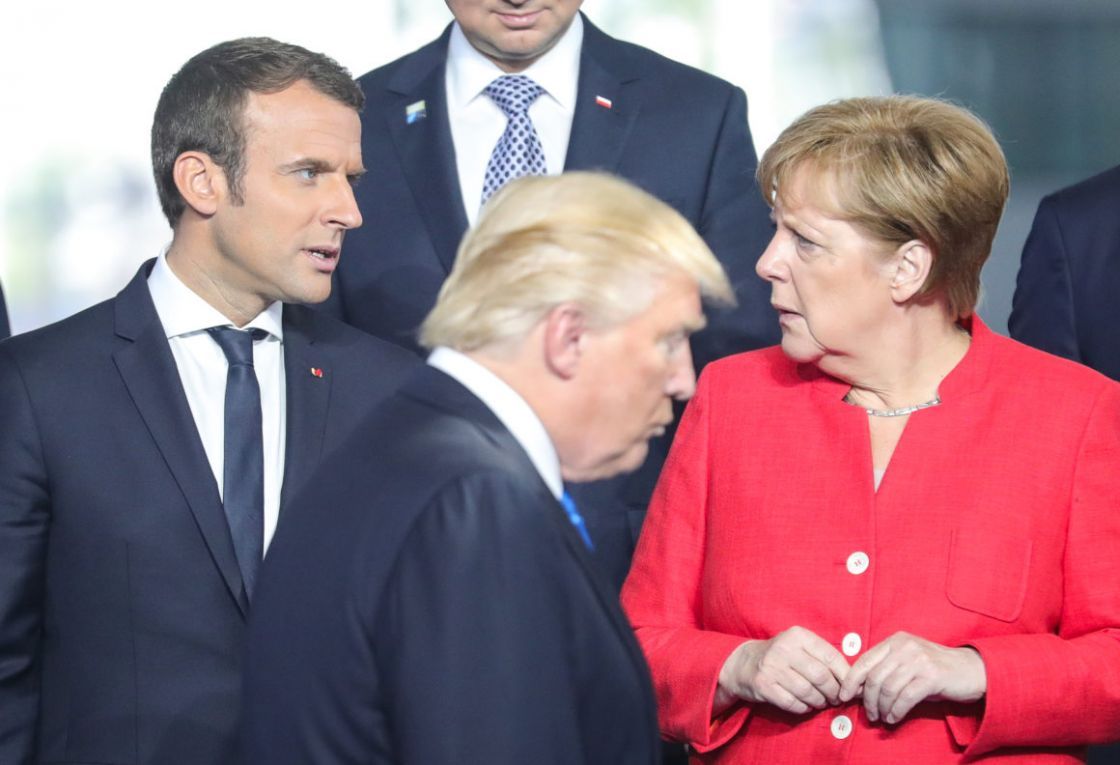- Editorials
- Posted
Europe and «Big Brother»
There are new indicators in international relations showing that the international situation, within the foreseeable future, is about to undergo major qualitative changes. The latest and most influential phenomenon is the recent escalating differences between the United States and its European allies on many files, including many basic common economic and political structures, which are the pillars of the Western capitalist center, and its instruments of hegemony.
The United States' unilateral withdrawal from international agreements, stealthily from its historic allies, has become an essential feature of American policy. In addition, the United States is trying to deal with each EU state individually rather than dealing with the union as an institution. Such occasions as: US blackmail of its European allies on the issue of defense expenditures and financial entitlements of the NATO members; the US President's statements about the alliance at the beginning of his post as a president; US withdrawal from the climate agreement; US trade tariffs on steel and aluminum; US breaking with the international consensus on the status of the Palestinian city of Jerusalem. All these events formed the beginning of division in the "non-sacred alliance".
Until recently, the ruling European political elite was trying to avoid deepening the rift with "Big Brother", either because of incompetence or complicity. However, the frivolity of "Big Brother" and the state of floundering in US decision-making circle, which is no longer hidden from anyone, is pushing even the closest allies to search for a way out of dependency which has became a chronic and embarrassing impasse with catastrophic consequences, to the extent that the President of the European Council, Donald Tusk, referred to the latest decisions of Donald Trump: "with friends like that who needs enemies?"
After German Chancellor Angela Merkel and French President Macron failed to persuade the US president to undo the US withdrawal from the nuclear deal with Iran, it is possible to say that relations between the Western alliance countries have entered a new phase, characterized by
commencing of division and its gradual deepening. This is evident by the Europeans husting to expand their relations with the Russian Federation, despite the US extreme reluctance to such a process. This fact is supported by the recent meetings of the Russian President with two of Washington's allies, Merkel and Macron, and the resulted agreements thereof, against the will of USA, and the signals implied in Putin's "marginal" statement regarding the possibility of providing Russian security assistance to Europe, and joint cooperation in this field, in addition to the results of the Italian elections which witnessed winning of those forces that call for broad relations with Russia, confirming that a European trend to turn eastward has become more likely.
If the Soviet-Chinese divide of the last century was a fundamental indicator of the decline of the states of the socialist system, and one of the precursors of the catastrophic collapse of 1991, the American-European divide today is a beginning of a process in the other direction, namely the beginning of the decline in the weight and role of the Western capitalist center in general, with all the implications of this process, including the socio-economic nature of this structure which is deemed to retreat under its unsolvable crisis.
Kassioun Editorial, Issue No 864, May 28, 2018


